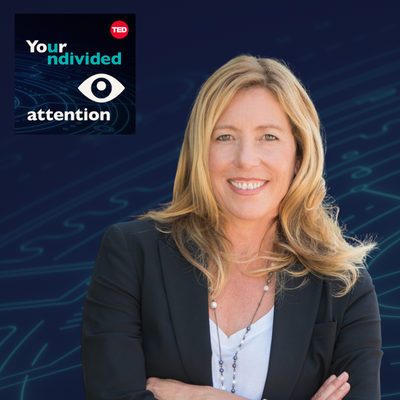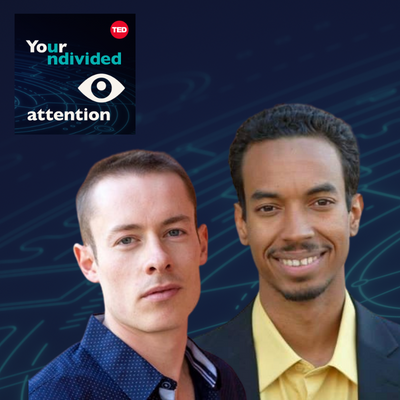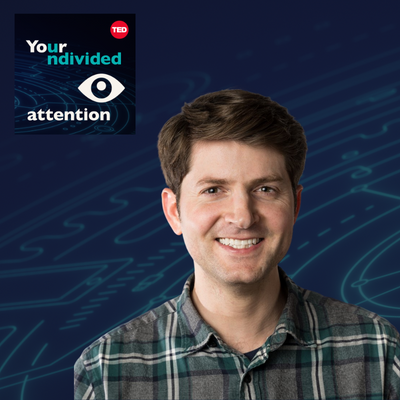Episode 50 | Apr 21, 2022
What Is Civil War in the Digital Age? with Barbara F. Walter
Civil war might be the most likely escalation pathway towards disaster for our country. On the flipside, learning how to avoid civil conflict — and more ambitiously, repair our civic fabric — might have the greatest leverage for addressing the challenges we face.
Our guest Barbara F. Walter is one of the world's leading experts on civil wars, political violence, and terrorism. She’s the author of How Civil Wars Start: And How To Stop Them, which provides insight into the drivers of civil war, how social media fuels conflict, and how we might repair our broken democracies.
Together, we explore what makes for a healthy liberal democracy, why democracies worldwide are in decline, and the role of resentment and hope. Join us in an exploration of the generator functions for civil war in the digital age, and how we might prevent them.
Major Takeaways
You may be surprised by what a 21st century civil war looks like:
“Civil War” is an umbrella term that covers many types of domestic political violence. It includes conflicts ranging from coups and insurgencies all the way to social revolutions.
What we think of when we hear “civil war” may be a historical artifact. Typical 21st century civil wars are not likely to be fought by organized rebel groups with clear chains of command. Instead, they’re decentralized insurgencies.
Civil wars can be major or minor. Barbara focuses her work on major civil wars — conflicts between one or more groups against the central government, with at least 1000 deaths per year.
What are the generator functions of civil war in the digital age?
A CIA special task force studied 30 variables that might predict civil war, and 2 rose to the top: the presence of anocracy and ethnic factionalism.
Anocracies are partial democracies. For instance, their elections are free but not entirely fair. The Center for Systemic Peace measures for democracies (and anocracies) using a 21 point scale.
Ethnic factionalism occurs when citizens organize politically around factors of identity, like ethnicity, religion, or race. This is in contrast to organizing around ideology, like conservatism, progressivism, or libertarianism.
Who incites civil wars?
Groups that tend to start ethnic, civil wars are the groups that had once been politically or economically dominant, but have lost power or believe they’re losing power. Prior dominance grants them the resources and capacity to act.
Barbara also talks about the role of ethnic entrepreneurs — individuals who play on people's identity for their own gain, and in turn drive ethnic factionalism.
How does social media accelerate civil war?
Because platforms do not provide transparency, we don’t yet have evidence that shows a causal link, for example, between the rise of social media and the decline of liberal democracy.
We do know that social media platforms maximize engagement to increase ad revenue, and out group animosity drives engagement.
That said, we’re seeing alarming trends. For 100 years until 2010, the number of global democracies had been increasing. Since then — which is when social media emerged — we’ve seen democracies decline annually worldwide.
Is the United States an anocracy?
According to measurement by the Center for Systemic Peace, the United States democracy dropped below the "democracy threshold" (+6) on the POLITY scale in 2020, and was considered an anocracy (+5) at the end of the year 2020. In 2021, the US score for returned to democracy (+8).
What solutions does Barbara Walter see?
Her top proposal is to regulate social media. She proposes putting limits on virality that would, for example, weaken Vladimir Putin's disinformation campaign against liberal democracies.
She also emphasizes the importance of strengthening our democracy. Full liberal democracies don't experience civil wars. Non-violent protest can be surprisingly effective.
There’s also the potential for citizens and outside governments to pressure businesses to play a role. This was the case in South Africa, as international sanctions forced the business community to choose between profit and Apartheid.
Other recommended reading
How Civil Wars Start: And How To Stop Them
Barbara F. Walter’s latest book and the subject of our conversation, identifying the conditions that give rise to modern civil war in order to address them
Political Violence At A Glance
An award-winning online magazine about the causes and consequences of violence and protest, co-authored by Barbara and other experts
The Center for Systemic Peace
Publications, analysis, and other resources from the organizations that measures for democracies and anocracies on a 21-point scale


